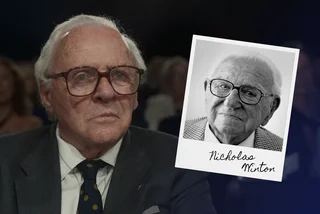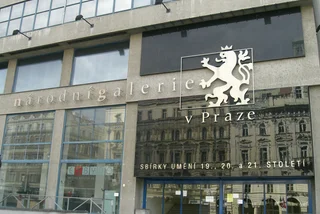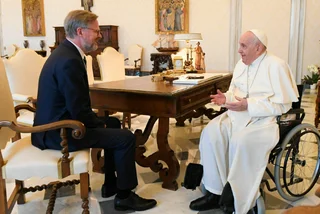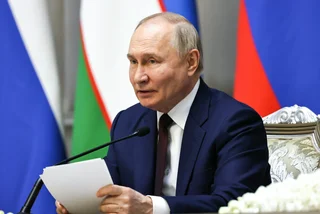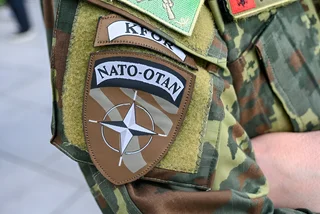Saturday’s anniversary of the formalized signing of the Munich Agreement bears a fundamental and important legacy for the present, Czech Senate Speaker Miloš Vystrčil emphasized this afternoon during a recent meeting commemorating the 85th anniversary of the agreement on the cession of Czechoslovakia's border territories to Germany.
The meeting took place in the Green Lounge of the Kolowrat Palace, the very location where the Czechoslovak government had first been acquainted with the content of the Munich Agreement on Sept. 30, 1938.
Do not repeat history's mistakes, Senate leader says
Vystrčil raised pertinent questions, challenging the Czech people to reflect on their ability to interpret history objectively, face the politics of concessions in contemporary contexts, and draw lessons from the mistakes of the past. He underscored the importance of not repeating history's errors and the necessity of acknowledging them.
Former Senate President Přemysl Sobotka recounted the process of obtaining a German copy of the Munich Agreement, which has been on display in the Kolowrat Palace since 2008. He emphasized that the Munich Agreement did not secure peace but rather led to further aggression, noting the parallels with the ongoing conflict in Ukraine. Sobotka warned against compromising democracy in the face of dictators, drawing attention to the challenges the world is currently facing in its response to Russia's actions in Ukraine.
Petr Pithart, another ex-Senate president, also drew parallels between the Munich Agreement and the current Ukraine crisis. He highlighted the division between those supporting Ukraine and those deferring to Russian President Vladimir Putin, emphasizing that the Czech Republic has stood as one of Ukraine's most reliable allies.
DÄ›kuji @SenatCZ za pozvánà na dneÅ¡nà diskusi o Mnichovské dohodÄ›, s 🇫🇷 🇩🇪 🇮🇹. Z historie se můžeme pouÄit jen tehdy, když si ji budeme pamatovat celou, vÄetnÄ› chyb. Nemůžeme znovu obÄ›tovat naÅ¡e spojence v nadÄ›ji, že to uklidnà agresora. MusÃme bránit naÅ¡e partnery a hodnoty. 1/2 pic.twitter.com/FT477XWTWd
— Matt Field (@MattFieldUK) September 29, 2023
Ambassadors coming together in Prague
Ambassadors from the signatory countries also addressed the gathering. German Ambassador to Czechia Andreas Künne stressed the importance of learning from history and defending European order and values, cautioning against policies of appeasement.
French Ambassador to Czechia Alexis Dutertre described Munich as a stark reminder of the weaknesses of democracies dealing with dictators. UK Ambassador Matt Field echoed these sentiments, drawing parallels between the Munich Agreement and the situation in Ukraine today.
The Munich Agreement forced Czechoslovakia to cede the Sudetenland territories to Germany, setting the stage for further Nazi expansion. It failed to ensure peace in Europe and ultimately led to the outbreak of World War II. However, as history has shown, the world learned from its mistakes, nullifying the agreement during the war and in the years that followed.
Reflecting on the Munich Agreement's legacy, it serves as a reminder that appeasement and concessions in the face of aggression may lead to dire consequences. As the world faces contemporary challenges, the lessons from this historic event continue to resonate, emphasizing the need for diplomacy, vigilance, and unity in defending peace and democratic values.













 Reading time: 2 minutes
Reading time: 2 minutes 


